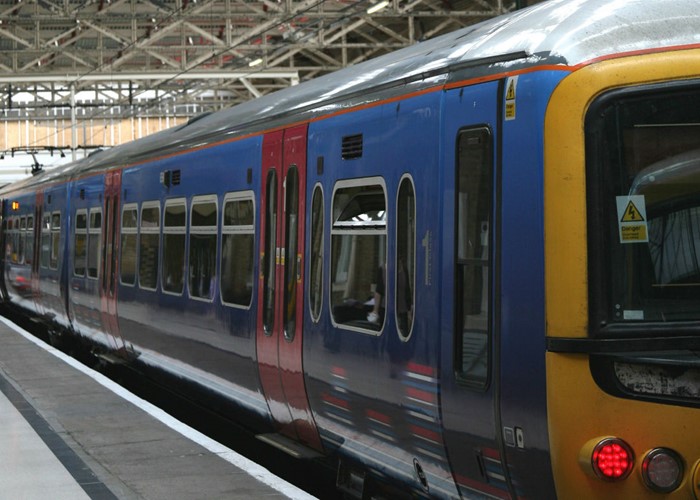How house prices change up to an hour's commute from London

Commutes of up to an hour make a significant difference on how much home you get for your money.
Homes in towns up to an hour by rail from Central London cost an average of £450,000 less than in the centre of the capital.
Research has found areas a one-hour commute from central London have an average property price of £272,000, compared to an average of £722,000 for a house nearer the office in London travelcard zones one and two.
Unsurprisingly, the closer you get to London the higher the house price. Properties in towns that are a 40-minute train ride away cost an average of £349,000, according to Lloyds Bank. But that is still £373,000 less than you would pay in central London, and by coming closer to the city your annual rail pass cost is reduced to an average of £3,499.
If you look at houses that are a 20-minute commute from central London you’ll pay £321,000 less than if you lived in the capital and an annual season ticket falls to £2,017.
Commuter savings
Here's how the commuter savings break down.
|
Area |
Average house price |
Average difference compared to zones 1 & 2 |
Average difference compared to zones 3 to 6 |
Average annual rail season ticket cost |
Towns/suburbs that fit the bill |
|
Areas in Travelcard zones 1 & 2 |
£722,169 |
||||
|
Areas up to 20 minutes away |
£401,083 |
£321,086 (44% lower) |
£125,000 (45% higher) |
£2,017 |
New Cross, Wimbledon, Ilford, Alexandra Palace, Hanwell, Tottenham, St. Albans and East Croydon |
|
Areas 21 to 40 minutes away |
£348,724 |
£373,445 (52% lower) |
£72,461 (26% higher) |
£3,499 |
Beaconsfield, Gerrards Cross, Hatfield, Guildford, Sidcup, Woking, Chelmsford, Harlow, Hemel Hempstead, Hounslow, Rickmansworth, Reading, Hitchin, Stevenage, Billericay, Luton, Sevenoaks |
|
Areas 41 to 60 minutes away |
£272,068 |
£450,100 (62% lower) |
£4,015 (1% lower) |
£4,944 |
Basingstoke, Crawley, Milton Keynes, Hounslow, Gravesend, Windsor, Northampton, Wellingborough, Rugby, Winchester, Colchester, Peterborough, Swindon, Oxford, Newbury, Kettering, Chatham, Sittingbourne, Tonbridge, Wokingham |
Source: Lloyds Bank
Exceptions to the rule
Of course not every town outside of London has lower house prices. For example, commuters living in Beaconsfield pay a higher average house price (£921,516) than in central London. Plus they have to pay an annual rail cost of £3,788. Nearby Gerrards Cross also has an average house price that is £32,525 higher than central London.
It's also worth noting that house prices in London generally increase faster than in the rest of the UK.
Quality of Life
Choosing whether to commute isn’t just about saving money, quality of life should also play a part in the decision.
Nearly all the towns in the survey show housing affordability is better with a London salary compared to what could be earned locally.
“For commuters with up to an hour’s journey to central London, the reward is an annual salary that is, on average, 22%, or £8,500, higher than what they could earn in their place of residence,” says Mason. “In the ten most affordable towns the uplift in annual earnings by working in London is nearly £13,000.”
Ten most affordable commuter towns
Bigger salaries achieved by working in London compared to where commuters live can make housing much more affordable.
Below are the ten areas which strike the best balance.
|
Town |
Average house price |
House price to average earnings for working in Central London |
|
Wellingborough, Northamptonshire |
£160,425 |
3.4 |
|
Kettering, Northamptonshire |
£177,584 |
3.8 |
|
Peterborough, Cambridgeshire |
£182,114 |
3.9 |
|
Chatham, Kent |
£183,140 |
3.9 |
|
Luton, Bedfordshire |
£186,752 |
4.0 |
|
Basildon, Essex |
£194,260 |
4.1 |
|
Swindon, Wiltshire |
£195,212 |
4.2 |
|
Sittingbourne, Kent |
£202,915 |
4.3 |
|
Northampton, Northamptonshire |
£206,087 |
4.4 |
|
Rugby, Warwickshire |
£209,320 |
4.5 |
Source: Lloyds Bank
Affordable city life
While house prices in London are high there are some parts of the country where city living is cheaper than commuting.
In Britain’s second and third largest cities, Birmingham and Manchester, house prices tend to be higher outside of the city.
The average house price in Birmingham is £162,000 but 40 minutes away – in places like Walsall or Burton-on-Trent – prices rise to £175,000.
Similarly, in Manchester house prices average £151,330 but 40 minutes by train takes you to Chorley, Huddersfield or Warrington where the average house costs £168,000.
Looking for a mortgage? Compare rates
More on mortgages and property:
Is it time to fix your mortgage?
Comments
Be the first to comment
Do you want to comment on this article? You need to be signed in for this feature